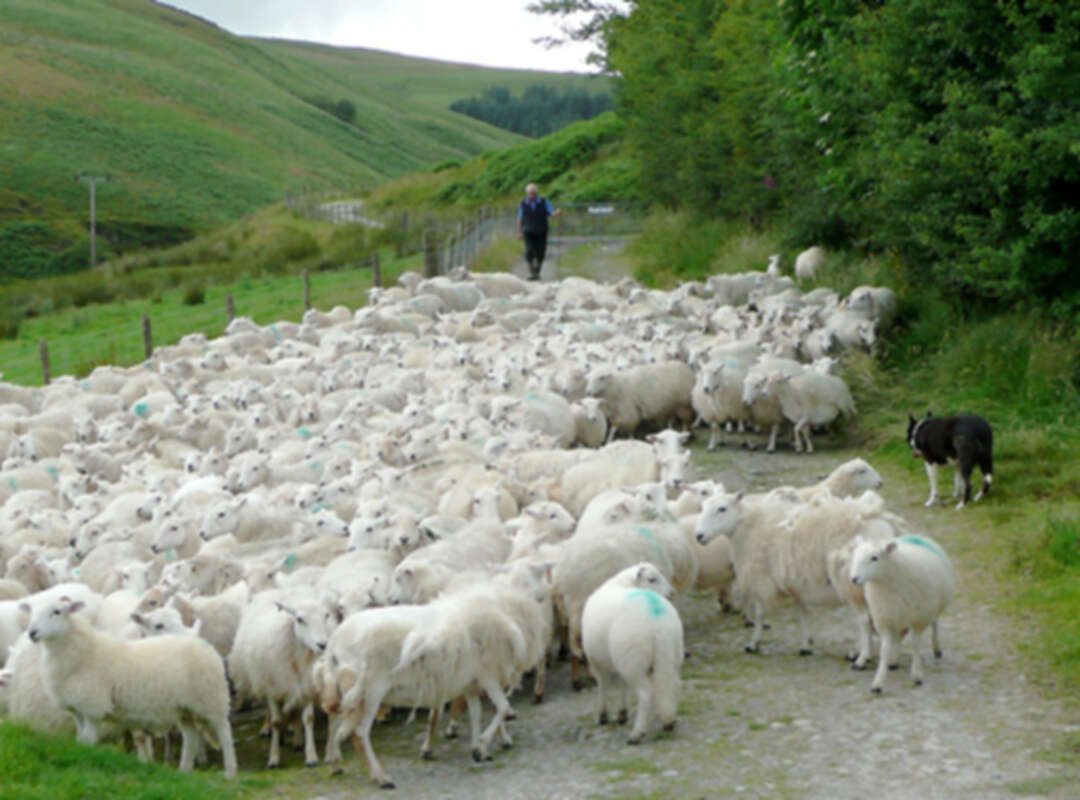-
agriculture : a year dominated by Brexit

The issue that consumed agriculture all year was Brexit.
The industry was particularly exposed to the potential implications and spent months trying to second guess them.
Long-standing cross-border supply chains in milk, meat, and vegetables were at risk from the twin threats of regulatory checks and tariffs.
Businesses watched as Parliament wrestled with whether to approve Theresa May's withdrawal deal - something which ended in failure and her resignation as prime minister
Peak concern came in October as efforts intensified by her successor Boris Johnson to cut a new deal with the EU and a no-deal Brexit looked distinctly possible.
First Dale Farm and then the entire dairy sector flagged the damage a no-deal Brexit could do.
The Dairy Council in Northern Ireland warned of a "doomsday".
The organisation's spokesman, Mike Johnson, said tariffs would cost dairy co-ops their customers, there would be no point collecting milk and farmers would have to pour it into slurry tanks or spread it on fields with the associated environmental and animal welfare implications.
Into this atmosphere stepped the Farming Minister Theresa Villiers in an attempt to reassure the agri-food industry.
In 2016 during the EU referendum campaign and as Northern Ireland secretary she had told farmers it was "perfectly possible" to have a border as "free flowing" for goods after Brexit as before.
A wee bit of support'
Later, during a lengthy meeting at Stormont in mid-October 2019 she promised them "additional financial support" were there to be "significant instability" in the market.
The Ulster Farmer's Union deputy president Victor Chestnutt was blunt in his response.
"I stressed that it wouldn't be a wee bit of support agriculture would be needing if we wake up with no route to market - it would be life support," he told BBC News NI after the meeting with Ms Villiers.
Boris Johnson defied his critics and persuaded the EU to revisit the withdrawal agreement, something it had said it would not do.
The new arrangements got a muted response from farmers.
They acknowledged it addressed some of their concerns about checks and tariffs on goods bound for markets in the EU.
But now the concern was what the prime minister's deal would mean for access to Northern Ireland's biggest single market - Great Britain - which takes almost half of our agri-food sales - the equivalent of £2.3bn.
A leaked treasury document which emerged during the election raised significant issues with how the new protocol might affect trade across the Irish Sea.
A comprehensive trade agreement with the EU should go some way to addressing many of the concerns farmers have.
It could well be this time next year before we see whether that is a runner.
source : BBC
Tags
You May Also Like
Popular Posts
Caricature
BENEFIT Sponsors BuildHer...
- April 23, 2025
BENEFIT, the Kingdom’s innovator and leading company in Fintech and electronic financial transactions service, has sponsored the BuildHer CityHack 2025 Hackathon, a two-day event spearheaded by the College of Engineering and Technology at the Royal University for Women (RUW).
Aimed at secondary school students, the event brought together a distinguished group of academic professionals and technology experts to mentor and inspire young participants.
More than 100 high school students from across the Kingdom of Bahrain took part in the hackathon, which featured an intensive programme of training workshops and hands-on sessions. These activities were tailored to enhance participants’ critical thinking, collaborative problem-solving, and team-building capabilities, while also encouraging the development of practical and sustainable solutions to contemporary challenges using modern technological tools.
BENEFIT’s Chief Executive Mr. Abdulwahed AlJanahi, commented: “Our support for this educational hackathon reflects our long-term strategic vision to nurture the talents of emerging national youth and empower the next generation of accomplished female leaders in technology. By fostering creativity and innovation, we aim to contribute meaningfully to Bahrain’s comprehensive development goals and align with the aspirations outlined in the Kingdom’s Vision 2030—an ambition in which BENEFIT plays a central role.”
Professor Riyadh Yousif Hamzah, President of the Royal University for Women, commented: “This initiative reflects our commitment to advancing women in STEM fields. We're cultivating a generation of creative, solution-driven female leaders who will drive national development. Our partnership with BENEFIT exemplifies the powerful synergy between academia and private sector in supporting educational innovation.”
Hanan Abdulla Hasan, Senior Manager, PR & Communication at BENEFIT, said: “We are honoured to collaborate with RUW in supporting this remarkable technology-focused event. It highlights our commitment to social responsibility, and our ongoing efforts to enhance the digital and innovation capabilities of young Bahraini women and foster their ability to harness technological tools in the service of a smarter, more sustainable future.”
For his part, Dr. Humam ElAgha, Acting Dean of the College of Engineering and Technology at the University, said: “BuildHer CityHack 2025 embodies our hands-on approach to education. By tackling real-world problems through creative thinking and sustainable solutions, we're preparing women to thrive in the knowledge economy – a cornerstone of the University's vision.”
opinion
Report
ads
Newsletter
Subscribe to our mailing list to get the new updates!






















